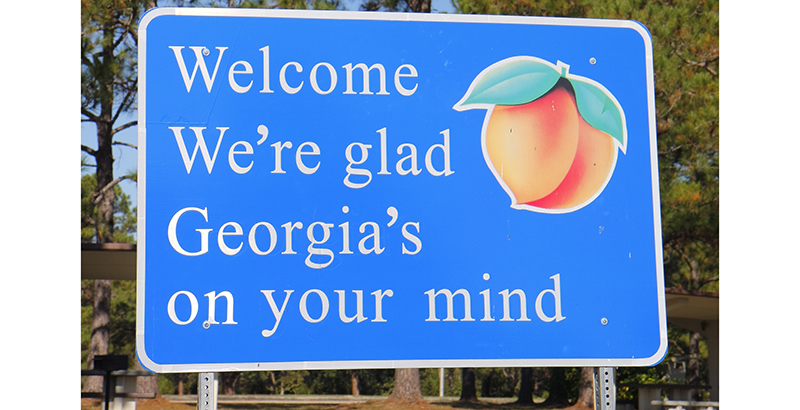Fulfilling the Charter School Promise: Accountability Matters; So Do Freedom, Fair Funding, and Strong Operators

Public charter schools, at the concept’s simplest, can be thought of in mathematical terms: flexibility under state education law + autonomy of decision-making by the governing body of the school + the highest accountability in public K-12 education = increased student achievement.
The equation is simple, but the reality of the equation is brutally complicated. The difficulties for those attempting quality reforms through chartering are made more challenging by district leaders and state policymakers, as well as many charter schools that sign up for the charter promise and then want to look the other way when accountability comes into play.
Nationally, the above charter-sector equation too often comes up short. The inability to make this 1+1+1=3 formula work leaves charters mired in an unfulfilled promise with, in practically every state, inequitable student funding. This scenario creates an environment for academic and operational failure. For state policymakers and local boards of education, these sets of circumstances are either unintentional, and therefore irresponsible, or intentional, and therefore immoral.
The 2017 University of Arkansas study “Charter School Funding: Inequity in the City” compared charter school funding with that of traditional public schools in 14 major metropolitan areas across the United States. The study notes that “public charter schools receive an average of $5,721 less per-pupil than traditional public schools, which represents a funding gap of 29 percent.”
State policymakers are fortunate that they rarely have to explain to parents of charter school students that their child is worth, on average, 70 cents on the dollar.
The first part of the charter school promise is intended to free up charter schools from bureaucracies that often thwart innovation in the classroom or at the school level. The broad flexibility that is supposed to be afforded is far too often a mirage. State and local policies, rules, and guidance continue to undermine the flexibility to innovate, making many charter schools across the country nothing more than a charter school in name only. Providing “flexibility” under state law and then passing laws, rules, and guidance that strip away that very same flexibility goes counter to the charter promise and is bad policymaking.
Benjamin J. Lindquist, a venture philanthropist and grantmaker who spent 22 years as an Arkansas charter school operator, warns, “If overregulation isn’t fixed, it won’t just stifle the charter sector’s growth. It will erode the performance and sustainability of existing schools because they’ll gradually lose the capacity to perform in a flexible, responsive fashion.”
Lindquist highlights his state’s tendency to over-regulate by subjecting charter schools to monitoring from 13 different divisions of four separate state agencies, each with its own unique set of requirements. These burdens are on top of other layers of bureaucratic mandates.
Unfortunately, similar creep continues to spread across the nation, keeping charter schools from their promise — to ultimately be responsible for outcomes (student achievement) as opposed to unnecessary and overbearing inputs.
Chester Finn, president emeritus at the Thomas B. Fordham Institute, noted in the 2010 study “Charter School Autonomy: A Half-Broken Promise,” “America’s charter schools resemble an artist who is expected to paint masterpieces while forced to wear thick mittens. Our policy makers and school authorizers, by and large, have not fulfilled their part of the grand ‘bargain’ that undergirds the charter school concept: that these new and independent schools will deliver solid academic results for needy kids in return for the freedom to do it their own way. There’s been plenty of attention in recent years to the results side of that bargain, but precious little to the freedom side.”
The role of a charter school authorizer, whether a local board of education or a dedicated state authorizer, is to provide quality oversight, ensuring the charter school is meeting the obligations set in its charter contract. It is then up to the governing board of the charter school to make decisions on mission, vision, and other determinations the board deems is in the school community’s best interest.
This is an area that requires far more out of local districts and state policymakers. Authorizers are often quick to meddle in the decision-making of a charter school board, influencing decisions through various means.
Georgia, where I have worked in the charter sector for 15 years, is an example of the broken promise to charters. In recent years, my state has:
- mandated how charters are to assess their teachers and leaders
- dictated goals in charter contracts that are not charter-specific
- undermined state law allowing high-achieving charter schools to receive a 10-year renewal by adopting a State Board of Education rule capping all renewals to five years (who knew a rule is stronger than the law?)
Georgia, like so many other chartering states, continues down a path of adding layer upon layer of bureaucracy in charter contracts, in law and in rule, causing charter schools to resemble traditional public schools rather than the laboratories of innovation they are supposed to be.
And what is a charter school board to do if it finds such meddling erroneous? It is a rare occasion when a charter school board takes its authorizer or the state to task, fearing retribution down the line. Call it human nature or what you will, there is a reluctance to challenge the very entity that holds your life in its hands.
At the same time, boards of charter schools in too many cases have also failed their constituents on the charter promise. Too many charter school boards do not provide a level of quality governance and oversight necessary for the charter school to operate satisfactorily. Unwieldy, incestuous and unreliable charter school boards are too common across the country. Charter schools must do a better job of instilling strong governance through committed community members with varying backgrounds if the charter is to fulfill its promise. Where you find a strong charter school, I will show you good governance and committed leaders who understand their roles and responsibilities.
The last part of the charter equation we all must better understand is accountability. If a charter school is not living up to its obligations, it runs the risk of closure, the highest accountability in public K-12 education. But authorizer accountability needs to be consistent and fact-based, something that is lacking across the nation.
Authorizers must do their due diligence to make sure any closure or reprimand of a charter school is done as part of a transparent and thorough process. It is unfair to any charter school and the parents and students the charter serves to reprimand or close the school without providing the charter with opportunities to first understand and then remedy the issues at hand.
To increase standards across the United States, we must start holding charter authorizers accountable. Policies must hold charter authorizers accountable similar to how we hold an individual charter school accountable. If an authorizer, which is receiving funding from the very charter schools it oversees, is unable to perform its duties for its charters, shouldn’t the authorizer lose the ability to authorize altogether? States need to look at the example set by Minnesota, which has shut down 40 of its 70 charter school authorizers in recent years.
For charter schools not meeting their obligations academically and/or operationally to their various constituencies — do not complain about the very accountability you signed up for in your charter contract. Accountability matters. Failing to recognize appropriate accountability in the charter sector makes the sector hypocritical toward the standards we say we live by.
So the next time we read about a charter school closure, we must consider how policymakers, charter school authorizers, and charter schools themselves have all played a role in an unfulfilled promise to children and families. The promise is a good one.
Now everyone needs to uphold their end of the bargain.
Andrew Lewis is an education and political consultant and the former longtime executive vice president of the Georgia Charter Schools Association.
Get stories like these delivered straight to your inbox. Sign up for The 74 Newsletter

;)
